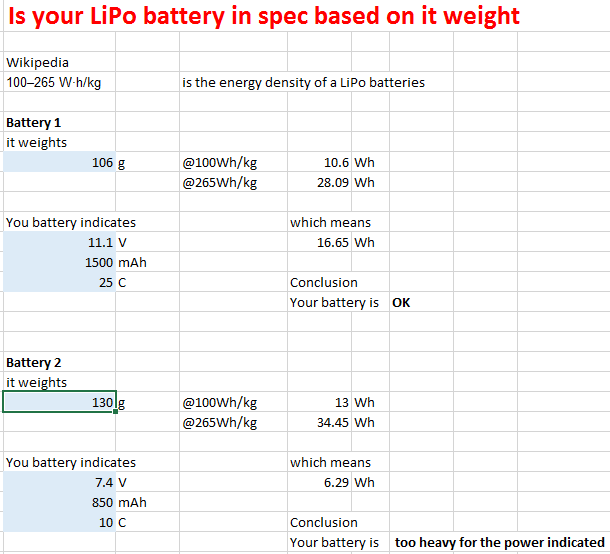About Batteries, their weight, capacity, etc...
I ordered some batteries online at
Banggood and they were all 3S
batteries, meaning 11.1V, 1500mAh.
I was surprise to see how different they looked. The main difference was
the weight. The heaviest was 136grams and the lightest was just 106grams.
Because energy in a battery is proportional to the volume, how can you
have the same capacity of 1500mAh and 11.1V if you have such a different
weight.
So I looked on Wikipedia, and found that the LiPo technology has an
energy density of 100 to 265Wh/kg which make a ratio of 265%
difference from one battery to the other.
My conclusion here was that in that case, this difference of 35% in
weight was still less than the 265% in energy density so I decided to see
how they behave in real life.
I made a small Excel Template to calculate if the batteries I am buying are
in spec or ou of specification in regards to the weight they have.

All it does is to calculate the Energy your battery can hold by multiplying
the amperage (i.e. 1500mAh) by the voltage (i.e. 11.1V) and comparing it to
the weight of your battery multiplied by the energy density.
Here you can download the battery comparison template (here).
The batteries can be found on
this pages.
If you are interested to see how Lithium Polymer
Batteries are built, then you could have a look at this
page from the founder of Sparkfun Nathan
Seidle when he visited a battery factory in China.
Another
Youtube video of the Orion batteries can be found here. It shows quite
nicely how the LiPo batteries are made.
Please Tweet, Like or Share us if you enjoyed.
